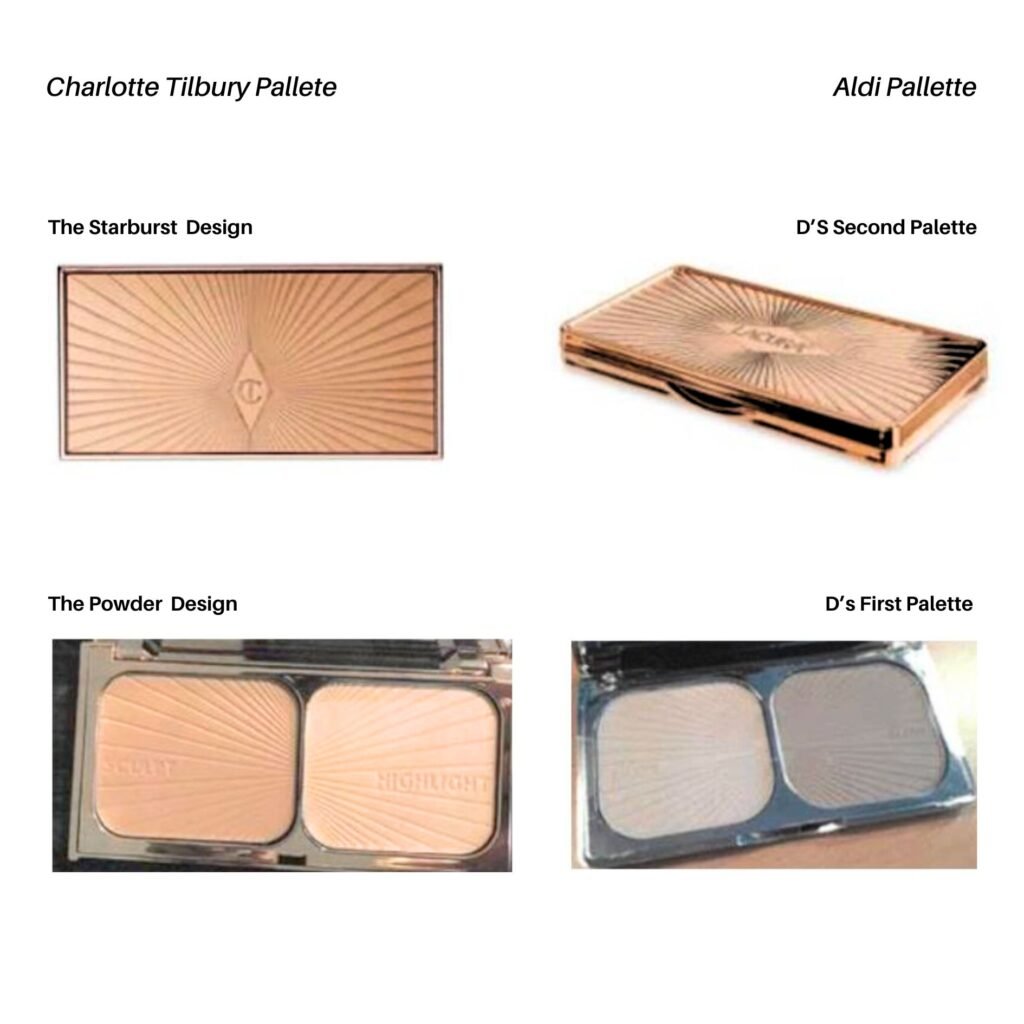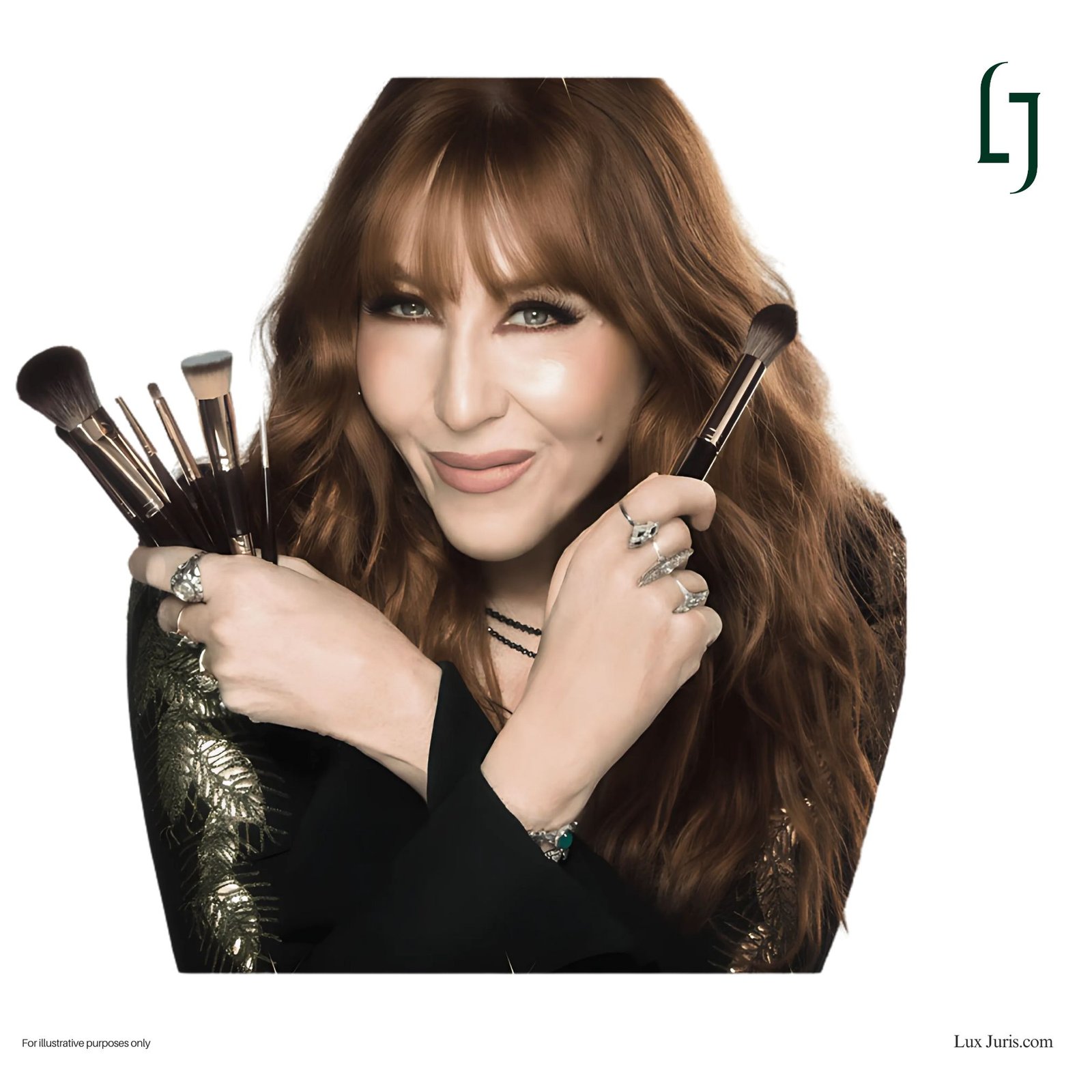Charlotte Tilbury, known for its luxury makeup and skincare, has secured a decisive legal victory in the Charlotte Tilbury vs Aldi case. The brand, recognised for its premium products and distinctive aesthetic, brought proceedings against Aldi for copyright infringement. The dispute centred on Aldi’s imitation of Charlotte Tilbury’s iconic Filmstar Bronze and Glow palette. The court ruled that Aldi unlawfully copied the design, confirming infringement. The Charlotte Tilbury vs Aldi decision upholds copyright protection for product designs and sets a clear precedent against copycat products.
The Dispute
Charlotte Tilbury launched its Filmstar Bronze and Glow palette in 2013, selling it for £49. It quickly became a best-seller, generating £12.9 million in sales over five years. Aldi later introduced a similar product at a much lower price, first selling it for £6.99 and then reducing it to £4.99. Islestarr Holdings Ltd, Charlotte Tilbury’s parent company, argued that Aldi had copied two key design elements: the Starburst Design on the lid and the Powder Design inside the powders. Aldi denied the allegations, but the court disagreed.
Who Owned the Design?
Aldi questioned Islestarr’s ownership of the design, arguing that it was created by James Houston, Islestarr’s Head of Operations, and a design agency called Made Thought Ltd. Aldi also suggested that other manufacturers, like La France Corporation, were involved, making ownership unclear. The court found that Islestarr owned the design through agreements with Made Thought Ltd. It also noted that Houston was an employee, so his work automatically belonged to Islestarr. Aldi’s argument on ownership failed.
Was the Design Original?
Aldi argued that Charlotte Tilbury’s designs were not original, claiming they were inspired by Art Deco patterns seen in vintage cigarette cases and mirrors. The court acknowledged that general design ideas are not protected by copyright. However, it found that the combination of elements in the Starburst and Powder Designs was original and protected by copyright. Aldi’s argument about originality failed.
Was the Powder Design Protected?
Aldi argued that the Powder Design was not protected because the pattern disappeared when the makeup was used. They referred to an earlier case where temporary face paint was not protected by copyright. The court rejected this, explaining that copyright protects the design itself, not just how long it lasts. Since the Powder Design was documented in drawings and production templates, it met the legal requirement for protection.
Did Aldi Copy the Design?
The court compared both products and found clear similarities. The Starburst Design on both palettes had rays radiating from a central point, similar spacing, and a similar rectangular shape. The Powder Design in both products featured sunburst patterns, capitalised text around the powders, and rounded trays.

Aldi argued that there were differences, such as different words, colours, and slight variations in ray angles. However, the court ruled that copying does not have to be exact. If the main creative features are repeated, it is still considered copying. Aldi’s designers admitted they had seen the Charlotte Tilbury palette while making their version. This shifted the burden of proof to Aldi, who could not prove they did not copy.
Deliberate Copying
Islestarr argued that Aldi deliberately copied the design to sell a cheaper version. They pointed to Aldi’s marketing strategy of selling lookalike products and their slogan, “Like brands, only cheaper.” The court agreed, finding that Aldi’s copying was intentional, which could lead to increased financial penalties.
The Decision
The court found that Aldi had no credible defence and that the similarities between the products were not accidental. It held that Aldi’s design was not independently created and that the evidence showed deliberate copying. As a result, the court ruled in favour of Islestarr and confirmed that Aldi had infringed its copyright.
Conclusion
From the case of Charlotte Tilbury vs Aldi, it is clear that retailers cannot avoid legal consequences by claiming inspiration from luxury brands. Copyright law protects product designs, ensuring that original creative work is not unfairly copied. Brands that invest in distinctive designs are entitled to take legal action against lookalikes that threaten their market position.
Sources:
